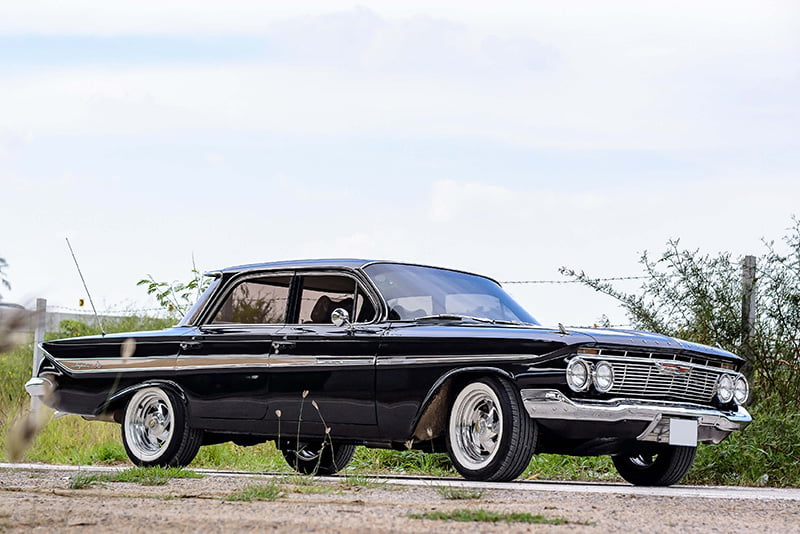Their very nature makes purchasing a vintage automobile tricky at times, so what should both revheads and collectors know about buying at classic car auctions?
Buying any used car comes with it’s own set of dangers, and usually has a long list of factors to check if you wish to avoid purchasing a lemon, and when it comes to purchasing a vintage collector’s car – this list only gets longer.
In Australia, the classic car market has low spreads and volatility, but with high liquidity. The prices are barely affected by supply and demand, as there’s simply not enough classic vehicles still around, especially those considered to be of both high value and high quality.
It should come as no surprise then that buying a classic car has become an increasingly common method to diversify an investment portfolio – even for those who aren’t exactly considered to be your average revhead. Suddenly, investing in a classic car is considered to be a whole lot “safer” than other traditional means, such as property or shares. Quite simply, the return on investment is all but guaranteed – but where do you find such motor vehicles? More often than not, the winners can be found at classic car auctions.
Four Tips For Buying At Classic Car Auctions
One of the most notable sites for classic cars auctions in Australia is GraysOnline. In fact, the online marketplace and auction houses have reported “record” February numbers for its classic car category, racking up more than 1.3 million page views and nearly 200, 000 unique visitors when compared to previous years.
“While we are used to seeing strong demand for classic Australian cars, we’ve never seen anything like this,” said GraysOnline CEO Chris Corbin. “Clearance rates have never been higher, and we don’t foresee demand or prices falling in the near future.”
Much like the Australian housing market, demand for classic cars is simply skyrocketing past the supply. While this is great news if you’re in the market to sell, it can make purchasing one slightly more different. After all, what lies under the hood is often a risk that bidders just have to gamble on.
However, statistics have shown that buying a car at auction can be 10-30% cheaper than shopping for a second-hand car at your local dealer. If you want to be on the right side of that statistic, the good news is that there are a few helpful tips and tricks that potential bidders can deploy in order to source a quality bargain.
Do The Research – In order to avoid buying a lemon, conduct thorough market research so you have a good idea as to what’s considered a fair price. This is also the time to review and get familiar with the policies, terms and conditions of each individual auction house, as the finer details can vary between them.
Try To Inspect – By Australian law, cars not deemed as salvage or written off must come with a roadworthy and other legal certificates. However, these may not tell the whole story and may not be a good indicator of reliability – this is where an inspection by a mechanic can be useful. You’ll also want to know exactly what needs attention mechanically vs what’s good to go.
Cast A Wide Net – While owning a Pontiac GTO might be on your bucket list, be realistic and honest about why you’re looking to potentially buy at classic car auctions in the first place. If you’re looking to invest and diversify your portfolio, remove the sentiment. If your wish list is broad, be sure to review common issues with each make and model before buying as well.
Body Language – If you’re bidding in person, pay attention to the physical cues that both you, other bidders and even the auctioneer can give away. If the auctioneer is staring at you, don’t buckle under pressure and bid higher than you mean to. Watch for dealers who bid to drive up the price of their own vehicles, which is one of the more common scams at classic car auctions.
As we’ve seen even in regular used car sales, which are also experiencing a boom in demand, the current market explosion for vehicles classed as collectors items can simply boil down to demand exceeding supply – after all, there’s a reason why classic cars are usually classed as collectors items, right?

